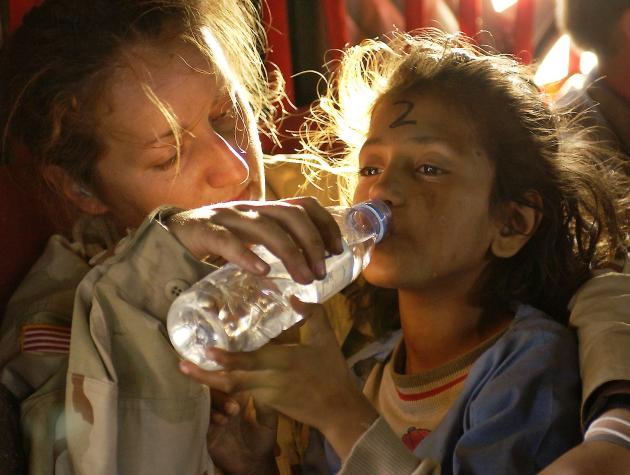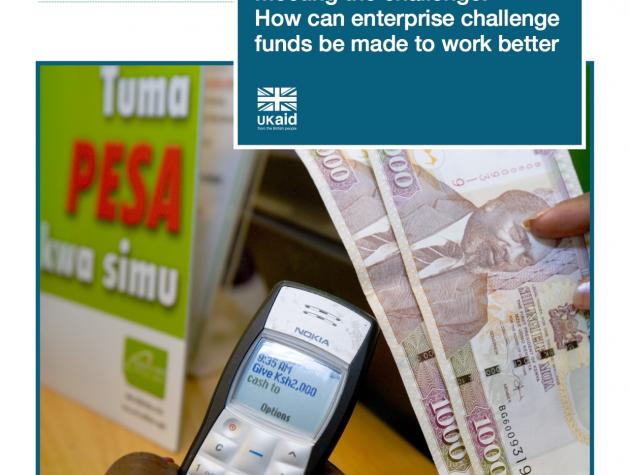Dr Nilima Gulrajani, Senior Research Associate
Nilima Gulrajani is Senior Researcher at the Global Economic Governance Programme at the University of Oxford and Visiting Fellow at the London School of Economics and Political Science (LSE). Nilima is also a Senior Research Fellow at the Overseas Development Institute, heading research on the Future of Aid Agencies.
She is an internationally recognized expert on foreign aid effectiveness and international development management and has published extensively for both media and academic audiences on these topics. Previously, she was an Assistant Professor at the LSE where she was jointly appointed to the Department of Government and the Department of International Development and taught courses in international public management and development policy. Nilima completed a PhD in Management Studies as a Bill Gates Scholar from the University of Cambridge, a BA from McGill University and an IB from Lester B. Pearson United World College of the Pacific.
Her practical policy experience comes from prior work as an economist at International Trade and Finance Group at the Canadian Ministry of Finance, the World Bank and the International Development Research Centre. She has also consulted on numerous development projects and studies, including with the OECD, the United Nations, KPMG, the UK’s National Audit Office, the Walter and Duncan Gordon Foundation, Linklaters LLP, UNU-WIDER and Oxford Analytica.
She currently serves as Trustee for the NGO Integrity Action, as Associate Editor of the journal Public Administration and Development and as Convenor of the Development Management Study Group of the UK Development Studies Association.
Publications
Gulrajani, N (2017) Bilateral Donors and the Age of the National Interest: What Prospects fro Challenge by Development Agencies? World Development, Volume 96: 375-389.
Gulrajani, N (2015) Britain has a new aid strategy. But has it got its priorities right? The Guardian.
Gulrajani, N. (2015) “Dilemmas in Donor Design: Organisational Reform and the Future of Foreign Aid Agencies.” Public Administration and Development 35(2): 152-164
Gulrajani, N. (with M. Gavas and T. Hart) (2015) Designing the Development Agency of the Future. Overseas Development Institute.
Gulrajani, N. (2014) “Organising for Donor Effectiveness: An Analytical Framework for Aid Effectiveness” Development Policy Review 32(1): 89-112.
Gulrajani, N. (2014) Written Evidence of the UK’s Select Committe on International Development Inquiry into Future UK Approaches to Foreign Aid. House of Commons Select Committee Publications.
Brain, Gulrajani and Mitchell (2014) Meeting the challenge: how can enterprise challenge funds be made to work better? DFID Working Paper.
N. Gulrajani, (2013) An Analytical Framework for Improving Aid Effectiveness Policies. GEG Working Paper 2013/87.
N. Gulrajani (2013) The Challenge Fund Aid Modality. WIDER Working Paper 2013/43.
N. Gulrajani and K. Moloney (2012), Globalizing Public Administration: Today’s Research and Tomorrow’s Agenda. Public Administration Review. 72(1): 78-86
N. Gulrajani, (2012) “Improving Canada’s performance as a bilateral donor: Assessing the past and building for the future” in S. Brown, ed. Struggling for Effectiveness: CIDA and Canadian Aid Policy. McGill-Queen’s University Press.
N. Gulrajani, (2012) “Executive Politics, Governance and International Development” in Lodge, M. and K. Wegrich, eds. Executive Politics and Governance. Palgrave.
N. Gulrajani, (2011) “Transcending the Great Foreign Aid Debate: Radical reform and the future of aid effectiveness.” Third World Quarterly. 32(3): 199-216.
K. Moloney and N. Gulranjani, (2011) “Globalized World, Globalized Research Version 20.20.” Public Administration Review. Supplement to Vol. 70: S298-S300.
N. Gulrajani, (2010) “Ringfencing aid may do more harm than good.” The Guardian. Comment is Free. October 24.
N. Gulrajani, (2010) “Poverty Reduction vs. Pork Barrel Politics” The Mark. Op-Ed. October 1.
N. Gulrajani, (2010) “The Great Aid Debate: From radicals to reformers to radical-reformers” Critical Investigations into Humanitarianism in Africa Blogspot. August 5.
N. Gulrajani (2010), “New vistas for development management: Examining radical-reformist possibilities and potential” Public Administration and Development. 30(2): 136-148.
N. Gulrajani, (2010) “The ghost in the aid machine: Moving beyond managerialism” The Broker Magazine.
N. Gulrajani, (2010) “Re-imagining Canadian development cooperation: A comparative examination of Norway and the UK.” Walter and Duncan Gordon Foundation Working Paper.
W. McCourt and N. Gulrajani (2010), “What Future for Development Management?” in Public Administration and Development. 30(2): 81-90.
N. Gulrajani, (2010)Challenging Global Accountability: The Intersection of Contracts and Culture at the World Bank Global Economic Governance Working Paper No. 2010/56.
N. Gulrajani, (2009) “In 2015” EADI Forum: After 2015: Promoting Pro-poor Policy after the MDGs.
N. Gulrajani, (2009) “How politicization has been silently killing the Canadian International Development Agency’s effectiveness.” The Globe and Mail. Op-Ed. June 8.
N. Gulrajani, (2009) “The future of development management: Examining possibilities and potential” DESTIN Working Paper Series No. 99.
N. Gulrajani, (2009) “Book review: ‘Dead Aid: why aid is not working and how there is another way for Africa” International Affairs 85 (3): 22-23
N. Gulrajani, (2008) “Book review: ‘Does Foreign Aid Really Work?’” Journal of Human Development. 9(1): 154-156.
N. Gulrajani, (2007) “Aiding Good Governance? An Examination of Canadian Bilateral Assistance to Vietnam” in Woods, N. and Welsh, J. (eds.) Exporting Good Governance: Temptations and Challenges in Canada’s Aid Program. Wilfred Laurier University Press.
N. Gulrajani, (2007) “Rejuvenating the Canadian International Development Agency: Searching for Strategic Focus.” Analytical Working Paper Series. Canadian Ministry of Finance, International Trade and Finance Division.
N. Gulrajani, (2007) “Models of Evaluation in International Development.” Analytical Working Paper Series. Canadian Ministry of Finance, International Trade and Finance Division.
N. Gulrajani, (2006) “The Art of Fine Balances: The Challenge of Institutionalizing the Comprehensive Development Framework Inside the World Bank” in Wright, C. and Stone, C. (eds.) The World Bank and Governance: A Decade of Reform and Reaction. Routledge
N. Gulrajani, S. Mulley and N. Woods (2006) “Who needs more cooperation? The United Nations and Development Assistance” Journal of International Law and International Relations.
N. Gulrajani, (2004) “Science or pseudo-science? Re-examining aid evaluation at the World Bank” The Lancet. 364(9448): 1852-1853.
N. Gulrajani, (2010) “Ringfencing aid may do more harm than good.” The Guardian. Comment is Free. October 24.
N. Gulrajani, (2010) “Poverty Reduction vs. Pork Barrel Politics” The Mark. Op-Ed. October 1.
N. Gulrajani, (2010) “The Great Aid Debate: From radicals to reformers to radical-reformers” Critical Investigations into Humanitarianism in Africa Blogspot. August 5.
N. Gulrajani (2010), “New vistas for development management: Examining radical-reformist possibilities and potential” Public Administration and Development. 30(2): 136-148.
N. Gulrajani, (2010) “The ghost in the aid machine: Moving beyond managerialism” The Broker Magazine.
N. Gulrajani, (2010) “Re-imagining Canadian development cooperation: A comparative examination of Norway and the UK.” Walter and Duncan Gordon Foundation Working Paper.
W. McCourt and N. Gulrajani (2010), “What Future for Development Management?” in Public Administration and Development. 30(2): 81-90.
N. Gulrajani, (2010)Challenging Global Accountability: The Intersection of Contracts and Culture at the World Bank Global Economic Governance Working Paper No. 2010/56.
N. Gulrajani, (2009) “In 2015” EADI Forum: After 2015: Promoting Pro-poor Policy after the MDGs.
N. Gulrajani, (2009) “How politicization has been silently killing the Canadian International Development Agency’s effectiveness.” The Globe and Mail. Op-Ed. June 8.
N. Gulrajani, (2009) “The future of development management: Examining possibilities and potential” DESTIN Working Paper Series No. 99.
N. Gulrajani, (2009) “Book review: ‘Dead Aid: why aid is not working and how there is another way for Africa” International Affairs 85 (3): 22-23
N. Gulrajani, (2008) “Book review: ‘Does Foreign Aid Really Work?’” Journal of Human Development. 9(1): 154-156.
N. Gulrajani, (2007) “Aiding Good Governance? An Examination of Canadian Bilateral Assistance to Vietnam” in Woods, N. and Welsh, J. (eds.) Exporting Good Governance: Temptations and Challenges in Canada’s Aid Program. Wilfred Laurier University Press.
N. Gulrajani, (2007) “Rejuvenating the Canadian International Development Agency: Searching for Strategic Focus.” Analytical Working Paper Series. Canadian Ministry of Finance, International Trade and Finance Division.
N. Gulrajani, (2007) “Models of Evaluation in International Development.” Analytical Working Paper Series. Canadian Ministry of Finance, International Trade and Finance Division.
N. Gulrajani, (2006) “The Art of Fine Balances: The Challenge of Institutionalizing the Comprehensive Development Framework Inside the World Bank” in Wright, C. and Stone, C. (eds.) The World Bank and Governance: A Decade of Reform and Reaction. Routledge
N. Gulrajani, S. Mulley and N. Woods (2006) “Who needs more cooperation? The United Nations and Development Assistance” Journal of International Law and International Relations.
N. Gulrajani, (2004) “Science or pseudo-science? Re-examining aid evaluation at the World Bank” The Lancet. 364(9448): 1852-1853.



